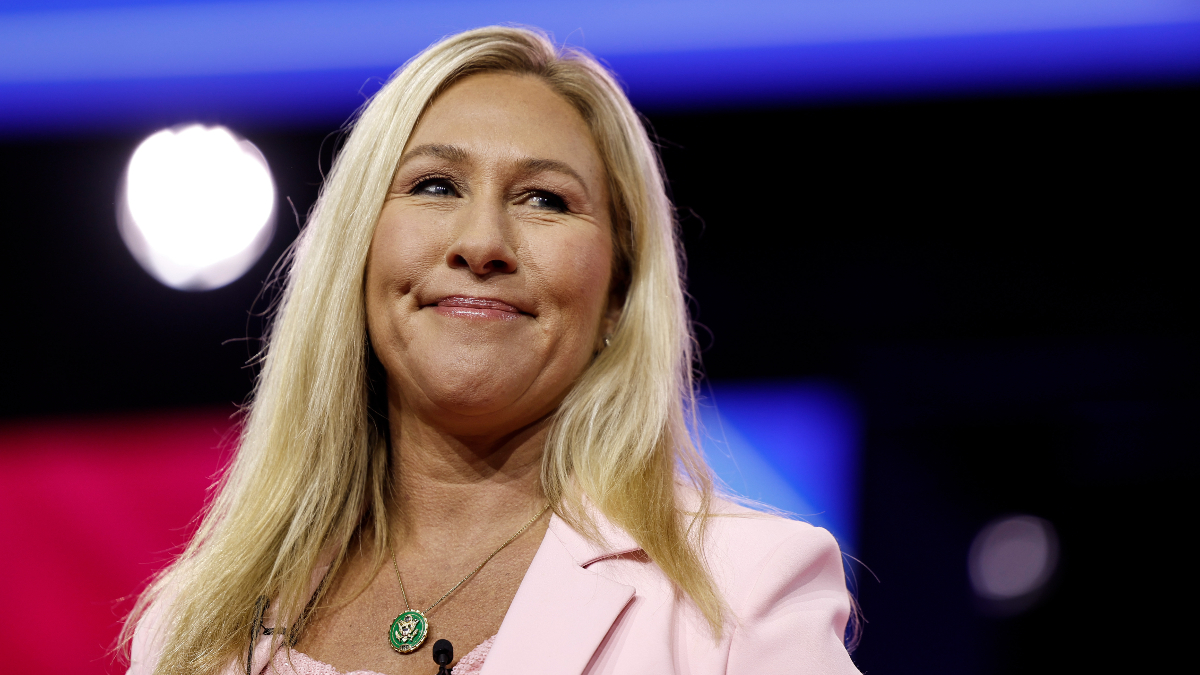Infamous Congresswoman Marjorie Taylor Greene has once again set social media aflame by proving that she has no idea what “gerrymandering” means. Earlier today, Greene took to Twitter to respond to comedian and The View co-host Joy Behar’s comments that Greene did not “have to earn the seat” because “she’s gerrymandered in.”
Quote tweeting right-wing journalist Nicholas Fondacaro’s article about Behar’s comments, Greene said:
“Ignorant, disconnected, and self righteous Joy Behar claimed my district was gerrymandered and that’s why I won. If she did her homework she would know that in order to get elected, I ran against 8 very credible men and won a primary run off in 2020 against a neurosurgeon that had the support of nearly every elected Republican in my district and over 30 Republican Congressmen.”
Greene went on to say: “Then in 2022, I beat 5 Republican candidates in my primary and proceeded to beat a male Democrat who spent $15 million against me and outraised me by $2 million dollars on top of Twitter permanently banning me the entire election cycle of 2022.”
According to the Merriam-Webster dictionary, gerrymandering is “the practice of dividing or arranging a territorial unit into election districts in a way that gives one political party an unfair advantage in elections.”
Of course, neither of Greene’s points disproves Behar’s statement, as neither are examples of gerrymandering. Gerrymandering does not affect primary elections, which are run by a local arm of a single political party and thus are unaffected by district boundaries. Plus, beating someone who raised and spent more money than you does not prove your district is not gerrymandered. In fact, some may argue that this could be proof that an area is gerrymandered.
To further prove that she nor the article she is quote tweeting understands the term’s meaning, Greene adds:
Furthermore, as Newsbusters accurately points out about gerrymandering: “In 2022, Greene won reelection with 65.86 percent of the vote. If that’s gerrymandered, they need to look at Greene’s Democratic colleague Hank Johnson who represents GA-4 which includes parts of the Atlanta metro area. He won reelection with 78.49 percent.” .
This statement is, once again, not an example of gerrymandering in action.
It should be noted that the exact shape, size, and layout of Georgia’s 14th district, the area represented by Greene, has frequently been criticized by locals. In 2021 residents of Powder Springs, Georgia, were angry that their region was redistricted to be part of Greene’s 14th district. Making it the only part of Cobb Country to be within this district.
Many at the time argued that this was done to dilute the old district’s powerful African-American voting block. At the time, David Wilkerson, Georgia State’s democratic representative, told CBS:
“What they’ve done is taken a predominantly African American area and combined it up with north Georgia to dilute our strength.”
This led to the SPLC taking the government to court in early 2022, arguing that the redistricting of Greene’s district, along with Georgia’s 6th and 13th districts, violate the 14th Amendment “by intentionally denying Black communities representation and therefore equal protection of the law,” as “Black communities in Cobb County were cracked into the largely rural, white, 14th District.” It also argued that other changes concentrated “Black voters and other voters of color into District 13, Black voting strength was reduced in other districts.”
When this redistricting first happened, Greene also criticized it. Though for opposite reasons. At the time, she argued that lawmakers should have “fortified G.O.P. districts for the long term instead,” proving she knows what gerrymandering means some of the time.










Published: Mar 16, 2023 08:11 pm